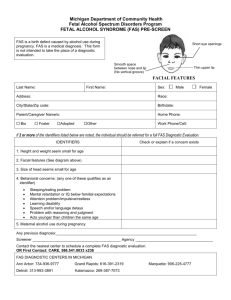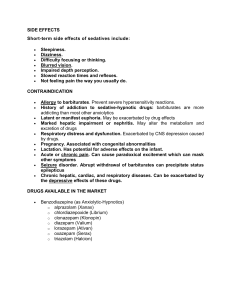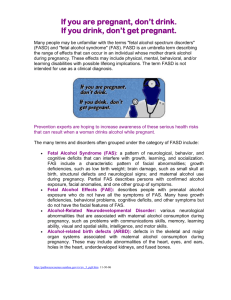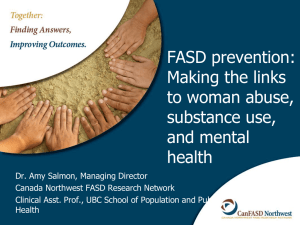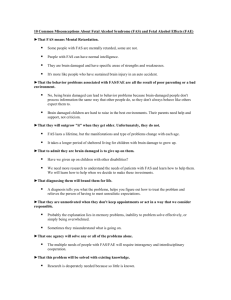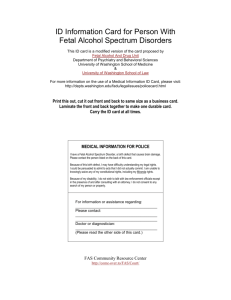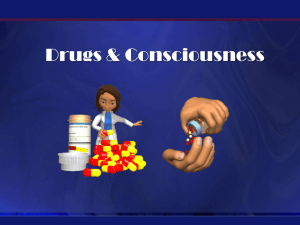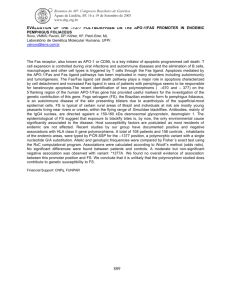depressants
advertisement
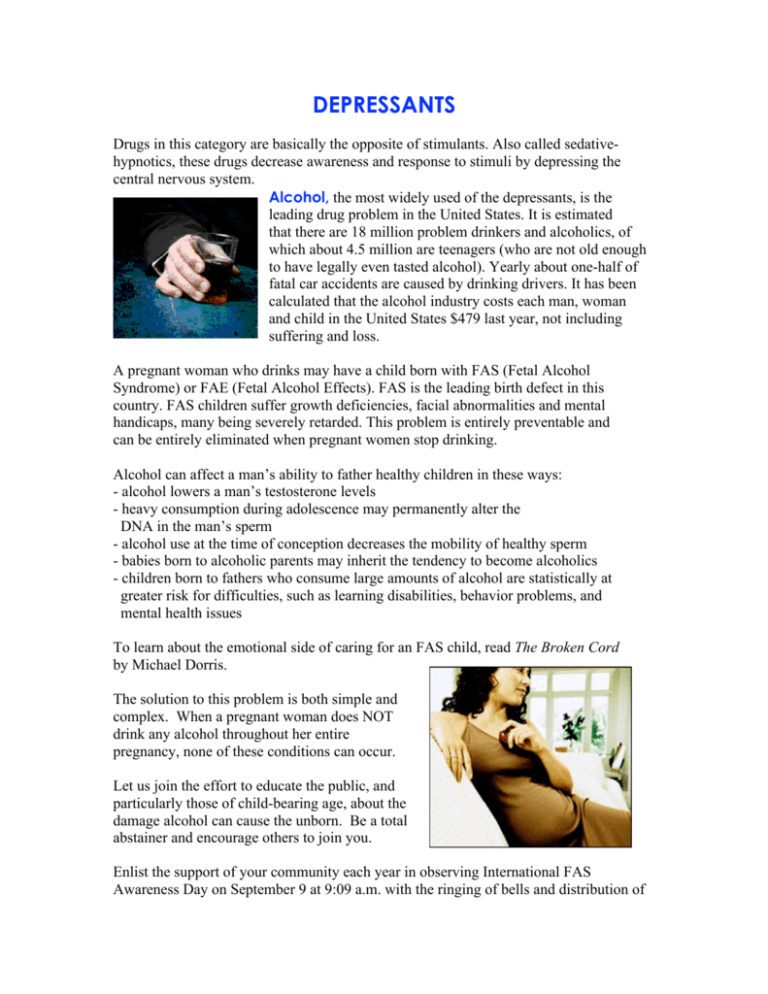
DEPRESSANTS Drugs in this category are basically the opposite of stimulants. Also called sedativehypnotics, these drugs decrease awareness and response to stimuli by depressing the central nervous system. Alcohol, the most widely used of the depressants, is the leading drug problem in the United States. It is estimated that there are 18 million problem drinkers and alcoholics, of which about 4.5 million are teenagers (who are not old enough to have legally even tasted alcohol). Yearly about one-half of fatal car accidents are caused by drinking drivers. It has been calculated that the alcohol industry costs each man, woman and child in the United States $479 last year, not including suffering and loss. A pregnant woman who drinks may have a child born with FAS (Fetal Alcohol Syndrome) or FAE (Fetal Alcohol Effects). FAS is the leading birth defect in this country. FAS children suffer growth deficiencies, facial abnormalities and mental handicaps, many being severely retarded. This problem is entirely preventable and can be entirely eliminated when pregnant women stop drinking. Alcohol can affect a man’s ability to father healthy children in these ways: - alcohol lowers a man’s testosterone levels - heavy consumption during adolescence may permanently alter the DNA in the man’s sperm - alcohol use at the time of conception decreases the mobility of healthy sperm - babies born to alcoholic parents may inherit the tendency to become alcoholics - children born to fathers who consume large amounts of alcohol are statistically at greater risk for difficulties, such as learning disabilities, behavior problems, and mental health issues To learn about the emotional side of caring for an FAS child, read The Broken Cord by Michael Dorris. The solution to this problem is both simple and complex. When a pregnant woman does NOT drink any alcohol throughout her entire pregnancy, none of these conditions can occur. Let us join the effort to educate the public, and particularly those of child-bearing age, about the damage alcohol can cause the unborn. Be a total abstainer and encourage others to join you. Enlist the support of your community each year in observing International FAS Awareness Day on September 9 at 9:09 a.m. with the ringing of bells and distribution of information. Let’s stop the risk of alcohol and the unborn so we can enjoy healthy babies. Sedatives are taken in smaller amounts to relieve anxiety, while hypnotics are given in larger doses and are used to induce sleep. Tranquilizers are prescribed to relieve stress and anxiety and are designed for temporary use. Barbiturates include a large group of drugs with names usually ending in "al," such as Amytal and Seconal. In smaller doses they produce calmness but in larger doses they can cause slurred speech, poor judgment and uncertain reflexes while even larger doses may lead to unconsciousness and death. Withdrawal from barbiturates is extremely difficult and can be more severe than heroin withdrawal. The potential for abuse is great for both barbiturates and tranquilizers. The taking of barbiturates and alcohol together, or the combination of two or more other drugs in this category at the same time, often leads to overdose or even death. This is due to synergism, the sum of the two drugs being greater than each individually. (Sometimes this is referred to as potentiation, which more precisely refers to the enhancing of one drug by another drug.)
